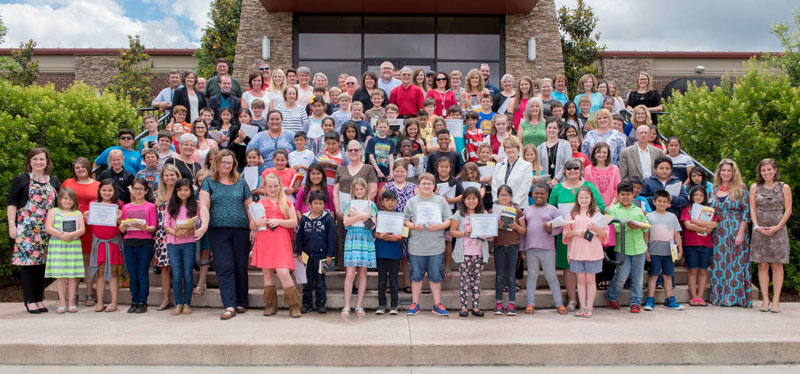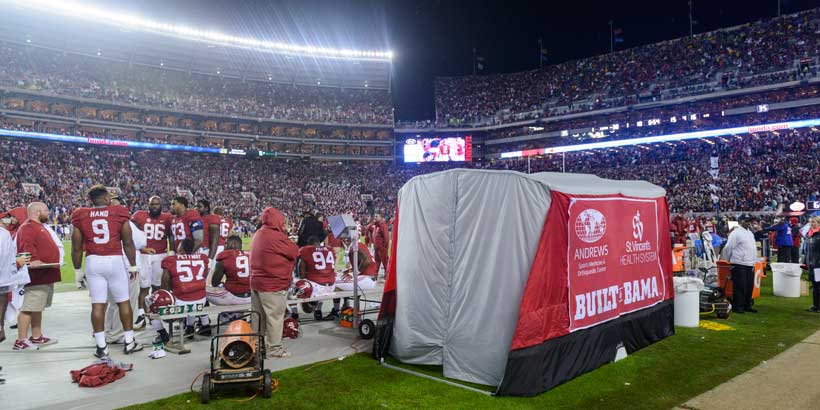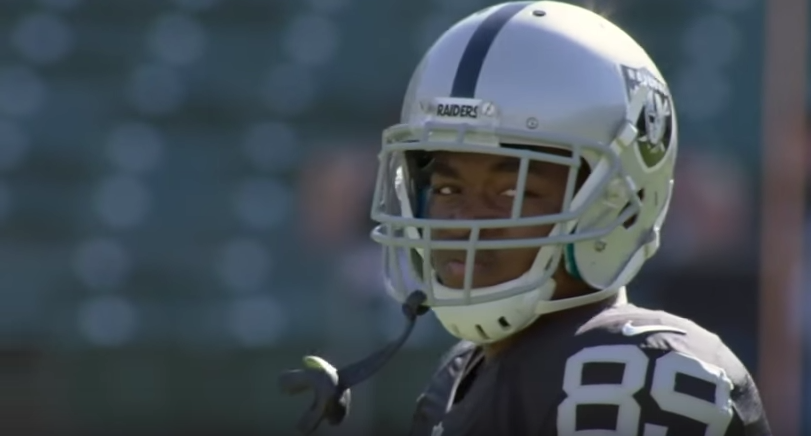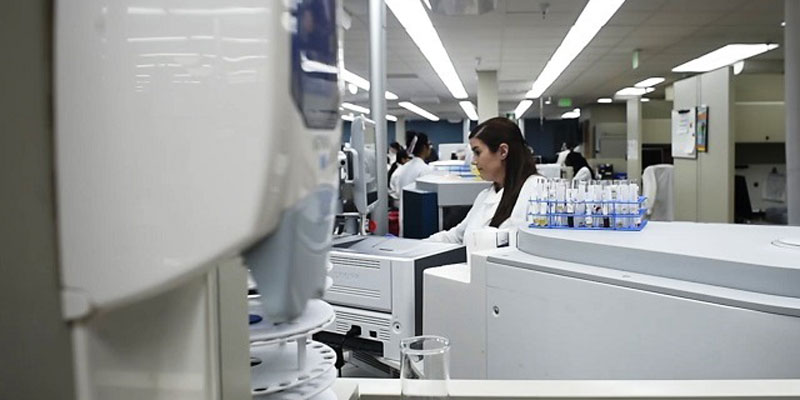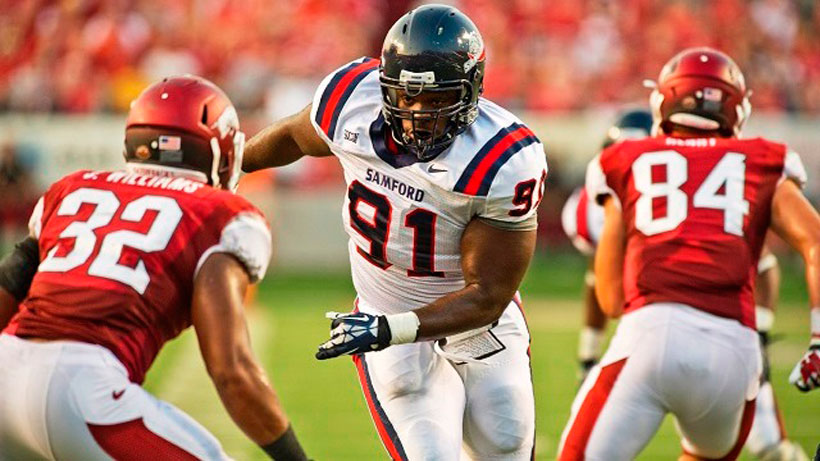
By Nathan Turner Jr.
A tall, brawny young man patrols the hallways of Putnam Middle School on Montclair Road in east Birmingham. The towering figure greets children by name. At one point, he offers words of encouragement to a seventh-grader who recently lost a sister to cancer.
Jeremy Towns, 6-foot-4-inches and 280 pounds, is a former professional football player and future medical student. Now, he strives to make a difference as a mentor to students in one of the city’s academically struggling schools. These endeavors are parts of Towns’ commitment to making the community better – one step at a time.
Towns, 27, an intern in Samford University’s Mann Center for Ethics and Leadership, is helping to build a mentoring program between Samford and Putnam. His goals are to aid students with conflict resolution and career planning, and to make positive decisions in their young lives.
The 2014 Samford sports medicine graduate believes that a need for role models is essential.
“Kids mimic the actions of those they encounter,” he said. “If the only people they see are criminals, then they will copy that behavior.”
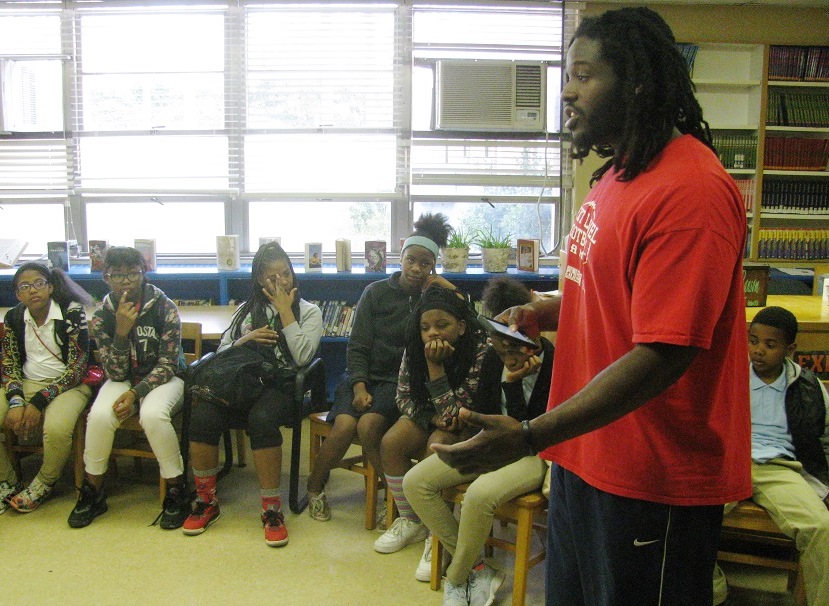
One day a week, Towns leads First Priority, a Bible study at Putnam before school hours. The sessions last about 15 minutes and are designed to teach and motivate students.
When Towns was about 9 years old, the Dolomite native’s mother, Janice, gave him a stethoscope for Christmas. She said to use the device, he would have to do well enough in school to become a doctor. In a quest to make that happen, he graduated from Wenonah High School in 2008 as valedictorian.
A stellar student at Samford, Towns was also a Bulldogs star defensive end who overcame a sports hernia and a high-ankle sprain. He tried out at a New York Jets minicamp in May 2014. A day before he was to depart for the University of South Alabama College of Medicine that year, he made a detour to a tryout camp for the Washington Redskins, who signed him to a free agent deal. From there, he played for the Buffalo Bills and the Philadelphia Eagles.
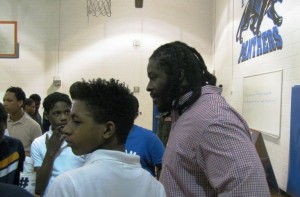
Towns places his brief career in the National Football League in perspective. It’s a business, he said, with an emphasis on profits and retaining the players who keep the team winning. “Even the team equipment manager’s job can be on shaky grounds,” he said.
In August, Towns will resume his path to a career as an orthopedic surgeon when he enters the USA medical school.
Towns is appreciated at Putnam Middle, where he’s known as J.T. Most of the school’s students come from low-income areas such as Marks Village, Harris Homes and Southtown.
“Mr. Towns is a natural fit for our campus: a gentle giant,” said Putnam Principal Brenda Dial. “He has earned a lot of respect among students and teachers. He has a spirit of love and giving; a special gift delivered with a quiet tone.”
One of his mentees is Calvin Haggins, an eighth-grader who says the former ballplayer helps him with anger issues.
“In the mornings, sometimes I am real mad. J.T. will talk with me to calm me down before school starts,” said Calvin, 13, who said he’s torn between a career as a mechanical engineer or as a poetry rapper.
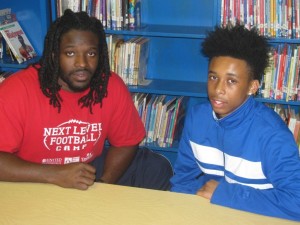
Calvin’s mother, Velma Elston, is a single parent and cardiovascular technician at the University of Alabama at Birmingham. Most kids need a mentor to keep them on the right track, Elston said.
Towns argues that youths are shaped by their environments. And it is essential to replace negative images with positive ones. Sometimes, he brings professionals such as financial planners to meet students. He hopes to take them to visit others, such as firefighters and Air Force pilots.
The future doctor believes “life on life” mentoring can curb the so-called school-to-prison pipeline, a phenomenon in which students are suspended or expelled and then arrested for minor offenses that lead toward crime and long-term incarceration. Statistics suggest the trend disproportionately affects students of color and those who have experienced abuse, neglect or poverty, or have learning disabilities.
“Life on life means you are more accessible to a child in the at-risk population and they can call you at any time,” Towns said. “This approach can work with trust from parents.”
Towns contends that poor choices can derail youths and prevent them from reaching their full potential. He advocates an integrated effort to assist teens, involving government, faith-based initiatives and education. The venture, he said, needs more people who are working for the benefit of youths rather than personal advancement.
A person who shows sincere interest in youths can help them become change agents, as well as influential and critical thinkers, Towns said
Drayton Nabers, director of Samford’s Mann Center, said Towns is a splendid role model, especially for young men.
“Jeremy is a large, strong, attractive man who kids immediately look up to and are inspired by,” said Nabers, a former Alabama Supreme Court chief justice. “He is also very physical, with a bright mind, strong character and deep faith.”
Towns said a theme in his life is helping people beat the odds. As a mentor, he wants to boost youths’ chances of avoiding gang life and becoming dropouts. As a physician, he wants people to gain the upper hand against heart disease, hypertension and diabetes.
Towns has built other outlets to sow faith and rich futures for marginalized youths. As a Samford University undergraduate, he began a ministry called RANSOM, or Radical Athlete and Student Oasis Ministry. Chapters have spread to the University of Alabama at Birmingham and Campbell University. His one-day football camps are designed to enhance youths in faith, academics and athletics. One event was sponsored by Towns’ former Samford Bulldogs teammate Nick Williams, now of the Kansas City Chiefs.
“We can’t change the world unless we first impact the people closest around us,” Towns said.








